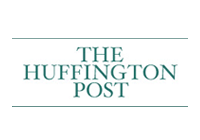
What Atheism Lacks: Humility, Imagination, Curiosity
As standards of living improve, religious belief will give way to atheism, and atheism’s victory over religion will be complete by 2038. So argues Nigel Barber, writing on June 5 in the Science section of the Huffington Post.
Relying on what he calls the “existential security hypothesis,” Barber claims that people turn to religion to calm the fears and insecurities caused by economic deprivation. But once their basic needs are assured and they are protected from early death by violence or disease, they become more secure in their daily lives and their need for religion fades.
Mr. Barber professes to offer proof for his thesis, most of it drawn from his own writings; although many HuffPost readers liked what he had to say, I did not find it convincing. My reaction can be divided into three parts.
First, the evidence of modern scholarship points in the opposite direction. The force of faith is growing throughout the world, even in wealthier countries — with the United States being the best example. Peter Berger, the famous sociologist of religion, once believed in the inevitability of secularization, but changed his mind, even as he notes that religion today has a more individual and personal cast than it did in earlier eras. Mr. Barber should also consult the writings of Robert Putnam, Nancy Ammerman, Robert Wuthnow, and James Davison Hunter; what he will find there is the study of religion’s vitality, not its disappearance.
Second, I felt sorry for Mr. Barber, just as I feel sorry for the other champions of atheism who are so intent on demonstrating religion’s imminent demise. I have the good fortune every week of sitting at the family table, absorbing the light of the Sabbath candles, feeling my spirits soar and experiencing the pure serenity of sacred time. Without Shabbat, and without the other rituals created by humankind’s great religious traditions, how do these atheism-obsessed individuals measure holiness? How do they distinguish the holy in life from the ordinary and the profane?
Third, I marvel at how limited Mr. Barber’s intellectual horizons are. The problem is not only that he is incapable of having a religious experience (a matter, of course, that is his business and not mine), but that he and like-minded atheists in his camp seem incapable of imagining that other people might regularly have religious experiences that do not result from poverty and deprivation.
I am a liberal, in both politics and religion. The heart of liberalism is recognizing the pluralistic nature of the human condition and devising a political system that enables us to live democratically with religious and political differences. In its embrace of diversity, pluralism, and religious tolerance, liberalism inevitably promotes humility about the world around us. Seeing how different we are from each other, liberalism encourages us to consider the possibility that there are things we do not know; that we might be wrong about matters such as God and the language of faith; and that even if the language of faith is not our language, it may be the language of others. Thoughtful liberals are almost always curious; knowing that different people recognize different truths, they wonder about those things that others care deeply about and yet are not part of their own experience. They find it natural to put themselves in the place of others, even if the act of doing so does not always lead to understanding.
There are those who see themselves as being in the liberal camp and yet, when it comes to religion, put liberal principles aside. In the academic world, for example, alongside scholars of religion who vigorously pursue knowledge and apply scientific standards to religious studies, there are still substantial pockets of otherwise distinguished scholars who fail to understand religion and, more importantly, fail to acknowledge their own lack of understanding. They see religion as an incidental force in human history, refusing to open their minds to religion and its influence in the same way that they open their minds to other fields of study.
I don’t know where Mr. Barber stands on the question of liberalism, but I do know that his sweeping claims on the decline of religion fail to convince, and his argument lacks the humility, imagination and curiosity that a liberal inquiry requires.
Religion is dynamic, important, and very much alive.


 Rabbi Eric Yoffie is a writer, lecturer, and internationally-known religious leader. A bold, compelling, and inspiring speaker, he has presented at the World Economic Forum in Davos and has appeared on Fox news, CNN, and many other news outlets. He writes regularly for Time, The Huffington Post, The Jerusalem Post and the Israeli daily Haaretz. He speaks on a
Rabbi Eric Yoffie is a writer, lecturer, and internationally-known religious leader. A bold, compelling, and inspiring speaker, he has presented at the World Economic Forum in Davos and has appeared on Fox news, CNN, and many other news outlets. He writes regularly for Time, The Huffington Post, The Jerusalem Post and the Israeli daily Haaretz. He speaks on a 
